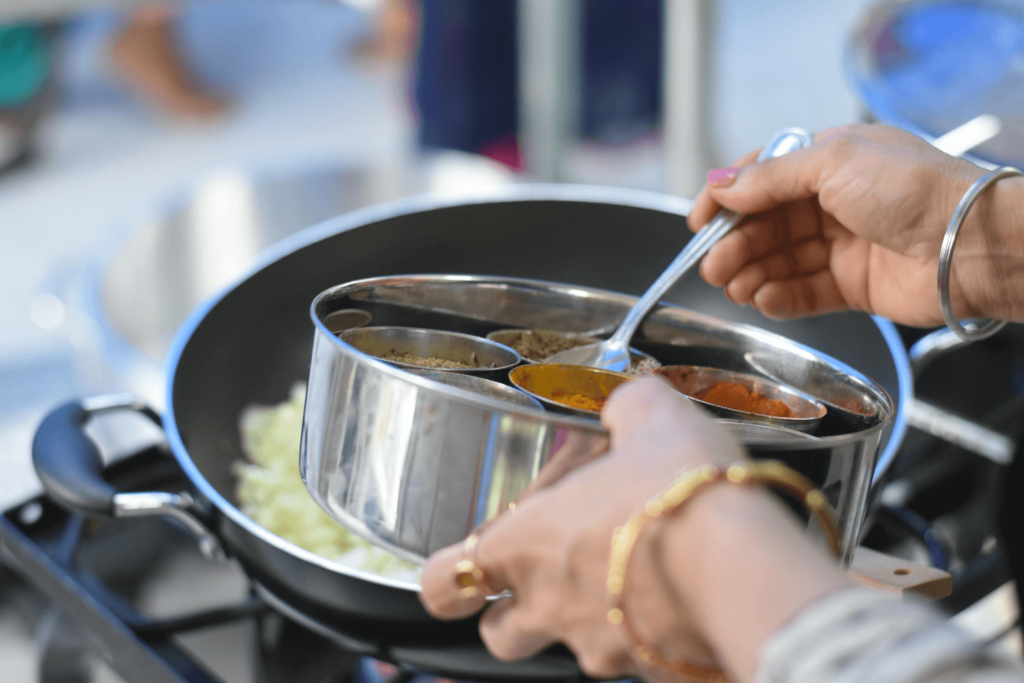What Indian Foods to Avoid While Trying to Conceive? – 11 Tips for Natural Conception

Indian Foods to Avoid When Trying to Conceive: 11 Tips for Natural Pregnancy Success
Pregnancy is a critical and joyous period in a woman’s life, bringing new lifestyle changes and responsibilities for expecting parents. Among the essential factors for a healthy pregnancy is diet. While a balanced diet is always beneficial, certain foods might not be advisable for women trying to conceive due to hormonal changes. This article explores which Indian foods to avoid if you’re trying to conceive and offers 11 tips to enhance your chances of getting pregnant naturally.

Image credit: Gagan Kaur
Tips for Parents Trying to Conceive
- Monitor Your Menstrual Cycle: Tracking your period dates helps identify ovulation periods, enhancing the chances of conception. Apps like Clue, Flo, and Glow can assist in tracking cycle lengths and predicting fertile days.
- Keep Track of Ovulation: Knowing when you ovulate is key. Ovulation Prediction Kits (OPKs) can help by detecting luteinizing hormone (LH) levels in urine, indicating ovulation.
- Track Cervical Mucus: Observing changes in cervical mucus can also indicate ovulation. Increased, slippery mucus suggests fertility.
- Monitor Basal Body Temperature: Tracking your basal body temperature can help predict ovulation. A slight temperature drop followed by a rise typically indicates ovulation.
- Consult a Specialist: Seeking medical advice can provide personalized tips and prenatal vitamins to enhance fertility.
- Reduce Stress: Stress can negatively impact fertility, so engaging in relaxing activities is crucial.
- Consider Prenatal Vitamins: Prenatal vitamins with 400mcg of folic acid can fill nutritional gaps and support pregnancy.
- Avoid Substance Abuse: Smoking and excessive alcohol intake reduce fertility and should be avoided.
- Moderate Exercise: While exercise is beneficial, over-exercising can affect ovulation and cycle regularity.
- Understand Age-Related Pregnancy Problems: Fertility decreases with age, especially after 30. Early planning can increase success rates.
- Time Your Intercourse: Knowing your ovulation period helps time intercourse for peak fertility. The best days are 4-5 days before and on the day of ovulation.
Related: 7 Tips For Getting Pregnant Faster
Indian Foods to Avoid While Trying to Conceive
Certain Indian foods and ingredients can negatively impact fertility. Here’s what to avoid:
- Fish: High mercury levels in fish can harm reproductive health. Limit intake to reduce risks.
- Caffeine: High caffeine consumption can lead to miscarriages and congenital disabilities. Limit your intake.
- Smoked Seafood: May contain harmful bacteria, leading to miscarriages and health issues for the baby.
- Unpasteurized Milk: Always consume pasteurized milk to avoid harmful bacteria.
- Trans Fats: Found in many Indian sweets and baked goods, trans fats can harm reproductive health. Avoid items prepared with partially hydrogenated oils like Vanaspati.
- Low-Fat Dairy Products: Low-fat dairy can disrupt menstrual cycles due to lower nutritional value and androgens.
- Sesame Seeds: Can stimulate uterine muscles and potentially lead to miscarriage.
- Ajinomoto (Monosodium Glutamate): Known to affect the baby’s brain development, it’s best to avoid.
- Fenugreek Seeds: Can reduce water levels and alter amniotic fluid concentration, affecting pregnancy.
- Certain Fruits:
- Green Papaya: Can cause uterine contractions and miscarriage.
- Pineapple: Contains bromelain, which can soften the cervix and cause contractions.
- Tamarind: High levels of vitamin C can reduce progesterone production, leading to complications.
- Bananas: Avoid if you have gestational diabetes.
- Watermelons: High sugar content can increase glucose levels and lead to health issues.
- Dates: Can increase body heat and cause uterine contractions.
Conclusion
Pregnancy is a special time requiring careful dietary considerations. If you’re planning to start a family, adjusting your diet to avoid these foods can improve your chances of conception. If you have questions or need more personalized advice, feel free to reach out in the comments. We’re here to support you on this important journey.
Read more: Nutrients And Micronutrients To Enhance Male Fertility






